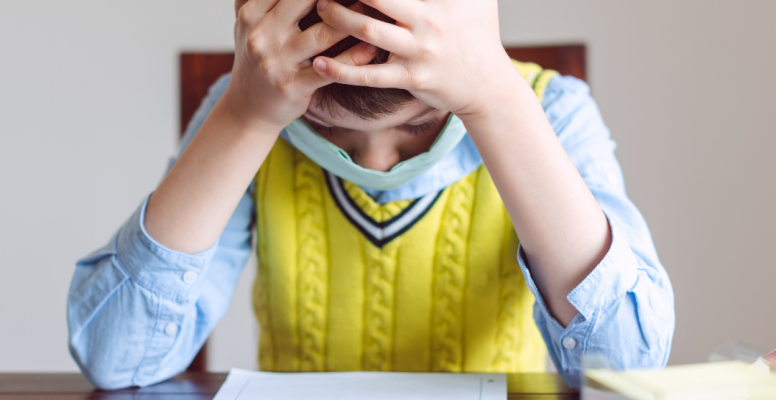
Youth Mental Health During the COVID-19 Pandemic: What You Can Do
Written By: Patricia H. Scherer, MS, Clinical Intern at ACS, On-Campus Counseling Program
The COVID-19 pandemichas been raising concerns about mental health around the globe. Research indicates that since the onset of the pandemic, psychological distress, including symptoms of anxiety and depression, have been rising in the general population. However, adolescents during the pandemic experience unique challenges that may put their mental health at greater risk.
School-closures and social distancing have kept youth confined at home for months, depriving them of their typical social support structures and disrupting family dynamics. As a result, youth have been relying on social media for support and entertainment, largely unsupervised. In particular, use of media outlets have been on the rise during the pandemic and correlates with increased levels of anxiety, depression, and other mental health problems.
While some distress in the face of a pandemic is expected, youth, unlike adults, typically do not have as many resources for adaptive ways to cope with distress. Youth that experienced mental health problems prior to the pandemic are more likely to have their symptoms be exacerbated. Others are experiencing significant mental distress for the first time and are struggling to cope.
Despite many youths going back to school and many lives resuming to pre-pandemic levels, pandemic related stressors remain for adolescents who have spent most of their teen years living in a post-pandemic world. Youth need our support in finding healthy and adaptive ways to cope with the stressors they face.
Interestingly, youth who have not experienced an increase in mental distress report having a structured routine, less passive screen time, lower exposure to pandemic related media, getting adequate sleep, and spending more time in nature. In particular, structured routine was found to buffer against the effects of family socioeconomic status, food insecurity, parental depression, and stress.
So, what can we do to support our youth?
- Create a structured family routine by maintaining a structured sleep-wake schedule, having dinner as a family at a consistent time, or having designated family time to decompress
- Limit passive screen time – time spent scrolling through social media, watching videos, looking at websites, and watching movies and TV
- Limit sensational media consumption regarding the pandemic and speak honestly with youth about events, listen to their concerns, and answer their questions
- Try to encourage sleep hygiene skills as a family – try to maintain a sleep-wake schedule by going to sleep and waking up around the same time each day, limit screen time right before bed and instead opt for a book, and engage in some relaxation exercises prior to bed including mindfulness meditation and progressive muscle relaxation
- Spend time in nature and engage in some physical activity as a family – go on a walk around the block, a local hike, go bird watching, or have a picnic at a nearby park
- Listen to youth when they share their struggles – validate their experiences and show them that you hear them with compassion
___________________________
References
Rosen, M. L., Rodman, A. M., Kasparek, S. W., Mayes, M., Freeman, M. M., Lengua, L. J., Meltzoff, A. N., & McLaughlin, K. A. (2021). Promoting youth mental health during the COVID-19 pandemic: A longitudinal study. PLOS ONE, 16(8), e0255294. https://doi.org/10.1371/journal.pone.0255294
Rousseau, C., & Miconi, D. (2020). Protecting Youth Mental Health During the COVID-19 Pandemic: A Challenging Engagement and Learning Process. Journal of the American Academy of Child & Adolescent Psychiatry, 59(11), 1203–1207. https://doi.org/10.1016/j.jaac.2020.08.007
